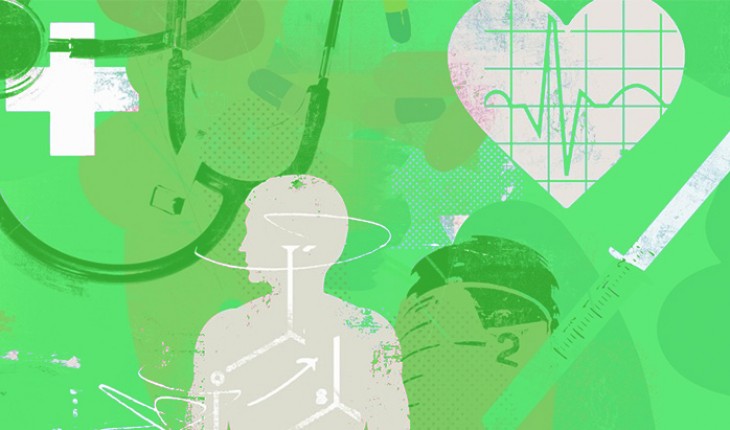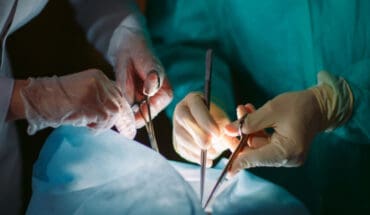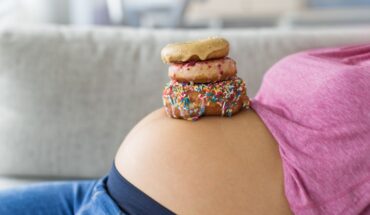It might seem bizarre but I have to fight battles to treat my patients. Yes of course I am fighting for NHS funding like so many colleagues; but I also have to fight against the often ill-informed views of society and even some in the medical fraternity; this is because I run an adolescent surgical weight loss clinic at King’s College Hospital.
The patients we see are aged between 13 and 18, and weigh anything between 130 – 200 kilograms. They have co-morbidities such as diabetes, hypertension, fatty livers and sleep apnoea. It is impossible for them to lose enough weight by diet alone, and so the only option to effectively reduce weight and perhaps save their lives, is bariatric surgery…. a gastric band. However, to much of society, this is a waste of NHS resources.
Yet how much of those limited resources are actually being spent on treating the diseases that accompany obesity?
Media sometimes highlights these children and our own service as too drastic a step and dubs this as unnecessary. Its easy to blame parents for the child’s weight however, there is not much done to highlight the other contributing factors which lead to obesity at such early age.
For parents, it is not always possible to control their children’s weight gain. Many of these adolescents are from poor socioeconomic backgrounds, often parents works shifts and are simply not at home to constantly police what their children eat. Yes they should fill their fridges and ladders with healthy food, but realistically if a bag of salad costs £1.49, and a parent on a low income can get two filling pizzas for the same price, it is not difficult to see why they choose the pizzas. These children are also told to stay indoors, as playing outside can be dangerous – or being seen to be dangerous. The parents fear pedophiles, knife crime, bullying, or that their child will be labeled a bully, or will join the wrong crowd. Single parents on a low income cannot pay for their kids to join clubs, have dance or fencing lessons, and they often don’t have time to play sports with them.
I am not arguing that bariatric surgery is the answer for all these children, but certainly a strong option in selected few. I currently operate on about three or four teenagers a year even though we see 10 obese adolescents every month. If I had the funding I would still only operate on about 10 to 12 teenagers annually. But we should not stigmatize those who need such operations. It is important to note that this type of surgery is offered as a package. For at least six months the adolescent is under the care of a multi disciplinary team including a psychologist and a dietician, and the parent or caregiver is heavily involved too. The actual surgery is effective in three ways: It restricts the size of the stomach, by about 75 per cent. This is important as the stomach signals to the brain that it is full so we stop eating; in obese patients this happens much later than usual. Research in adults has shown the surgery alters the way the brain functions so the ‘I am full’ message is sent much earlier. And bariatric surgery also has an effect on gut hormones that are in the stomach and control hunger, so the patient no long feels hungry as often.
The benefits of the surgery are easy to measure: the average weight reduction is 27 per cent, more than a quarter of their body weight. One patient, who weighed 200 kgs or 30 stones, has lost 80 kgs in the two years after his surgery. 95 per cent of children with Type 2 diabetes are cured once they lose their weight, and three quarters of them manage to control their blood pressure. Of course these teenagers need lifelong support as well as supplements such as vitamins. If they are not kept motivated they can regain the weight if they stretch their remaining stomach. But data for bariatric surgery is encouraging. A recent article in New England Journal of Medicine shows this.
Despite this evidence there is still no consistent regulation about such surgery on teenagers. It is NICE approved, but has limited funding by NHS England so I have to argue case by case for each teenager requiring surgery. I am currently part of a working group with NHS England to set the nationwide criteria for this surgery and work is in progress. I am optimistic that we will succeed in our aim to achieve this regulation, however my battle to convince the public that this type of surgery is vital will continue.
- Why Bariatric Surgery should be offered to obese adolescents - 1st March 2016






